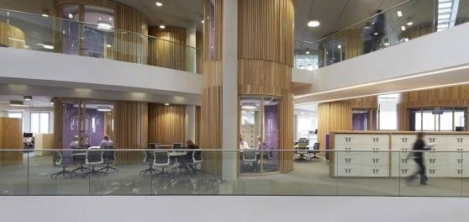January 8, 2015
Report outlines steps firms can take to banish the workplace blues
 The back to work blues following the festive holidays are a challenge for businesses and their employees. However, new research from office furniture maker Steelcase claims that prioritising employees’ wellbeing at work is one way to help employers and staff overcome their annual seasonal hurdle. The study of the link between workers’ wellbeing and the business’s bottom line claims that employees who are in a positive frame of mind are not only healthier, but more productive at work and better able to deal with workplace challenges. Steelcase has also produced a list of measures that the firm claims can help to create a working environment that looks after the wellbeing of employees and helps them to become more productive.
The back to work blues following the festive holidays are a challenge for businesses and their employees. However, new research from office furniture maker Steelcase claims that prioritising employees’ wellbeing at work is one way to help employers and staff overcome their annual seasonal hurdle. The study of the link between workers’ wellbeing and the business’s bottom line claims that employees who are in a positive frame of mind are not only healthier, but more productive at work and better able to deal with workplace challenges. Steelcase has also produced a list of measures that the firm claims can help to create a working environment that looks after the wellbeing of employees and helps them to become more productive.





 The UK labour market will continue to expand at a strong rate in 2015 but there are unresolved issues relating to levels of pay and how best to increase workplace productivity to drive further growth, according to Mark Beatson, chief economist for the Chartered Institute of Personnel and Development (CIPD) in
The UK labour market will continue to expand at a strong rate in 2015 but there are unresolved issues relating to levels of pay and how best to increase workplace productivity to drive further growth, according to Mark Beatson, chief economist for the Chartered Institute of Personnel and Development (CIPD) in 

















December 15, 2014
Wearable tech will change the workplace in unexpected ways
by Mark Eltringham • Comment
More →